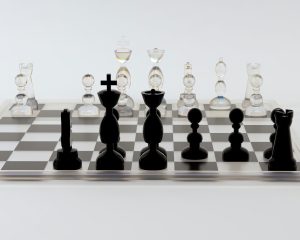Conspiracy Theory Defenses: When Beliefs Impact Criminal Trials
When it comes to criminal trials, the outcome often depends on a jury’s interpretation of the evidence presented. However, in some cases, the belief in a conspiracy theory can greatly impact the decision-making process. This phenomenon, known as “conspiracy theory defenses,” has become increasingly prevalent in recent years. In this article, we will explore what these defenses are, how they can affect the outcome of a trial, and the ethical implications that arise in such cases.
The Rise of Conspiracy Theories
In today’s society, the internet has made it easier for conspiracy theories to spread like wildfire. From the belief that the moon landing was faked to the idea that powerful secret organizations control world events, these theories often attract a devoted following. And while some may dismiss them as mere fantasy, others take them very seriously, to the point of using them as a defense in a court of law.
What are Conspiracy Theory Defenses?
Conspiracy theory defenses involve the defendant claiming that they are innocent because they were part of a larger plot or scheme, often orchestrated by powerful entities or individuals. These defenses rely on the idea that the defendant’s actions were not their own but were influenced by outside forces beyond their control. This can range from government agencies to organized crime groups.
In recent years, there have been multiple high-profile cases where conspiracy theory defenses have been used. One of the most well-known examples is the trial of drug lord Joaquín “El Chapo” Guzmán in 2019, where his lawyers argued that he was a pawn in a larger conspiracy involving corrupt Mexican officials and the US Drug Enforcement Administration.
Impact on Criminal Trials
In criminal trials, the burden of proof lies with the prosecution, meaning that they have to prove beyond a reasonable doubt that the defendant is guilty. This can be a difficult task, especially when conspiracy theory defenses are brought into play. These defenses can introduce a level of doubt into the minds of the jury, making it challenging for the prosecution to convince them of the defendant’s guilt.
Another way these defenses can impact a trial is by shifting the focus away from the evidence and onto the conspiracy itself. The defense may try to portray the defendant as a victim of circumstances rather than a perpetrator, painting them as a hero or martyr fighting against a corrupt system. This tactic can be particularly effective in swaying the opinions of the jury, as it appeals to their emotions rather than their logic.
Ethical Implications
The use of conspiracy theory defenses raises ethical concerns in the legal system. On one side, it can be argued that everyone has the right to a defense, and the use of any strategy, including conspiracy theories, is justified. However, on the other side, it can be seen as a manipulation of the justice system and an attempt to deflect responsibility for one’s actions.
Besides the potential harm to the justice system, using conspiracy theories as a defense can also negatively impact the lives of those who genuinely believe in them. These individuals may be labeled as “crazy” or “delusional” by society, making it challenging for them to get the support they need. It can also propagate harmful and baseless ideas, leading to the spread of misinformation.
Conclusion
In conclusion, conspiracy theory defenses have become a controversial and increasingly concerning aspect of the legal system. While it is understandable that individuals will do whatever they can to avoid punishment, the use of these defenses can have serious consequences. Not only can it sway the outcome of a trial, but it can also perpetuate harmful beliefs and undermine the integrity of the justice system. As such, it is crucial for the legal community to find a balance between providing a fair defense and protecting the truth.











